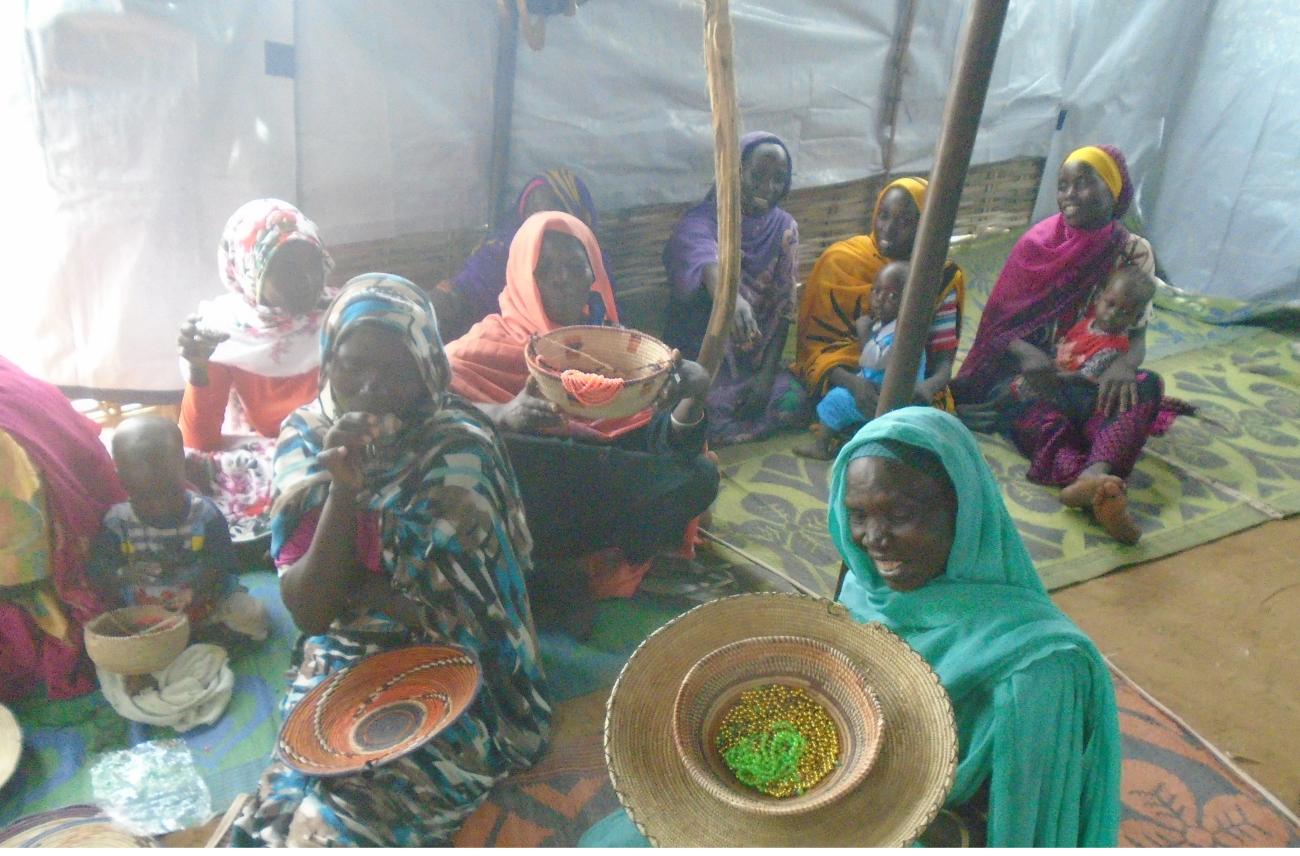“With the skills I gained, I became capable of making better decisions for myself, overcoming my own traumas and helping other women within my community to regain their strength just as I have” says Hiba Abbaker Ahmed, a 35-year-old woman from Kasab camp for internally displaced people in Kutum, North Darfur, who was one of the women who received psychosocial support services from Women Centres in Sudan.
Women Centres have been established by the UN through UN Women in collaboration with local non-governmental organizations across the country (in West, North and South Darfur states). By using a community-based approach, the seven centres offer psychological support services to address traumas associated with gender-based violence and provides skills to provide peer-to-peer guidance.
Violence against women and girls is regarded as a prevalent and critical hindering factor for human development and peace-building in Sudan. The country has a weak normative framework regarding violence against women, as it is not a state party to the Convention on the Elimination of All forms of Discrimination Against Women.
“After gaining knowledge and strength, I reached out to a neighbour of mine to help her deal with her own stressful situation, which she was going through due to violence at home” says Hiba referring to how she applied her newly acquired skills from the centre. Proudly speaking of the impact of her mentoring capacities, Hiba proclaims that after her neighbour decided to leave her house and children because she could not withstand her situation, Hiba was able to support her neighbour in navigating through difficult decisions and ways to reconnect with older relatives for moral support.
Through these Women Centres, UN Women promoted the concept of community involvement through ownership and collective championship of protection response. The organization worked on raising awareness of community members targeting women exposed to risk and hazards as well as community members who are capable to exert influence of protecting these women. The initiatives implemented were based on a human rights-based approach, whose purpose is to empower boys, girls, men and women to claim their human rights (as rights holders) and to increase the capacity of those who are obliged to respect, promote, protect and fulfil those rights (as duty bearers).
Throughout 2017, UN Women advocated for laws, policies and strategies to be developed, adopted and implemented to respond to violence against women and girls. The Women Centres are part of a programme implemented for survivors of gender-based violence to access survivor focused services. In Sudan, the policy environment for addressing violence against women is weak due to sensitivities on data collection and cultural stigma.
Hiba went on to say: “Although I was the one who attended the sessions, their impact helped me make other women in my community stronger”.







